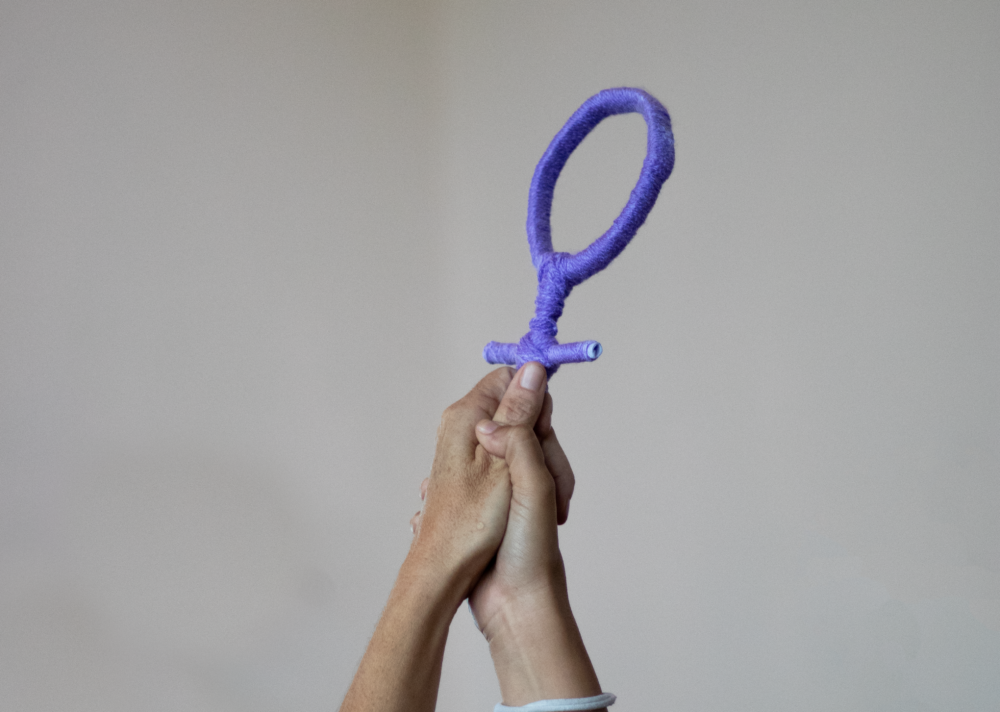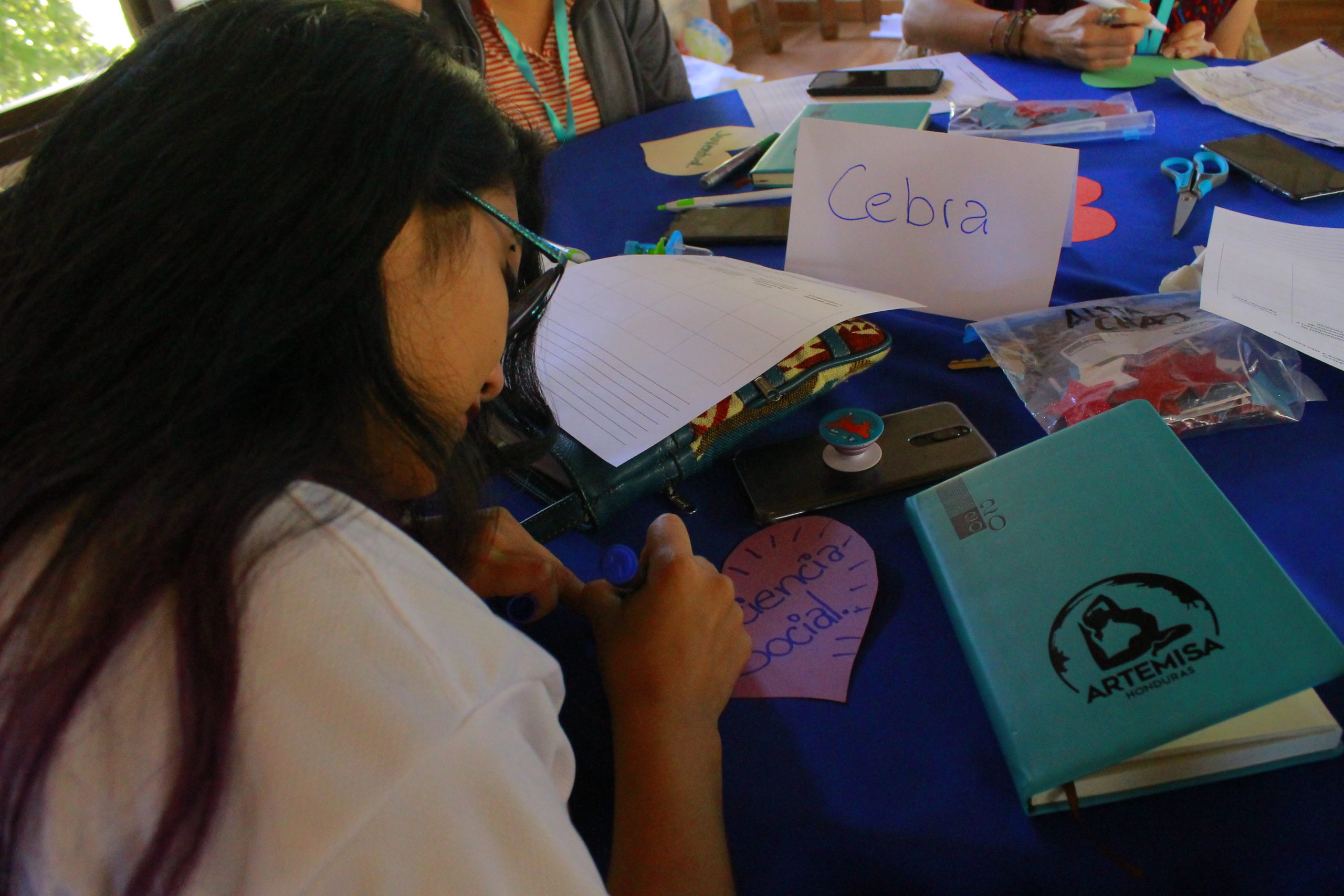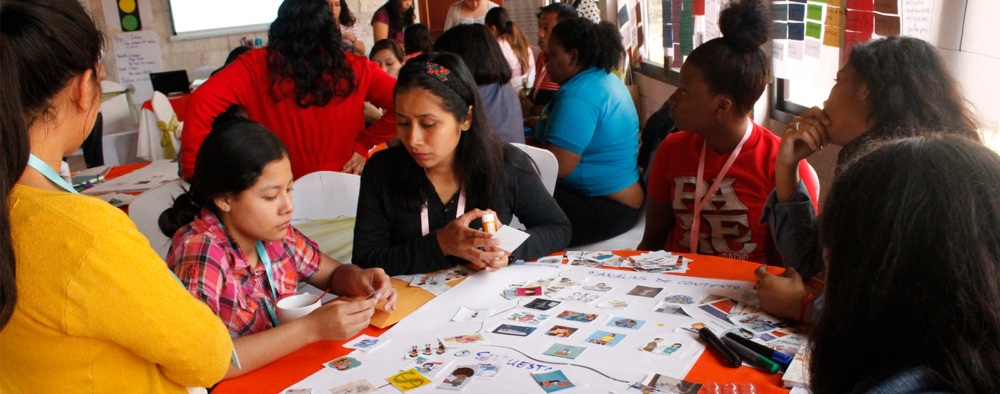
Gender justice, Safety and wellbeing
Education, Gender justice
Editor’s Note: this blog is also available in Spanish.
These were some of the words we heard when we asked more than 45 community and youth leaders: “What gives you power?” These meaningful examples of power fuel these advocates’ work to strengthen gender equality in Central America.
In February 2020, local leaders for girls’ rights from Guatemala, Nicaragua, and Honduras came together to explore their collective power for social change in Valle de Angeles, Honduras. This event was the second convening of Global Fund for Children’s Empowering Adolescent Girls initiative.
The partners in this initiative regularly confront oppressive power dynamics that exert control over girls’ lives – whether it’s through their inclusive direct services, creative programming, or community advocacy. As partners develop and lead influencing strategies to transform political, economic, and social power dynamics in their communities, the convening created space for leaders and youth to reflect on their own transformative power.
Within the field of advocacy, it is common to acknowledge power takes on different forms. While many people often think of power exclusively as power over, there are transformative types of power: everyone has power within themselves, the power to take action, and power with others to create change. During the convening, the group explored their collective power to influence power dynamics as a network of 18 diverse community-based organizations in the region.
What forces and power dynamics are operating in Central America to oppress adolescent girls? What dynamics can transform power to create a more equal and just society for adolescent girls?
Partners came together to answer these questions, creating a regional contextual analysis.
[image_caption caption=”Nancy, from GFC partner Jóvenes por el Cambio, writes what gives her power. © Eli” float=””]

[/image_caption]
Looking at distinct spheres of girls’ lives like school, home, neighborhood, and beyond, partners identified social norms and systemic issues impacting girls’ rights. For instance, as partners examined barriers to educational access, they identified unifying themes of harmful power dynamics across countries, such as a lack of access to education throughout girls’ adolescence, harassment and aggression by school personnel and peers, and lack of support for menstrual care.
Participants then selected issues they care about and identified an advocacy objective and a decision-maker who directly impacts that issue – from school system supervisors who overlook abuse in schools, to a mother hesitant to allow her daughter to attend university. They worked together to identify messages and messengers to strategically influence those with decision-making power.
At the same time, partners discussed other ways to create more equal and just educational spaces by changing institutional policies and programming. Their ideas included increased institutional commitment to security and child safeguarding, parental engagement, inclusive spaces for diverse girls, gender-sensitive policies and curriculum, and specialized training for girl-centered programming.
Throughout the convening, partners learned about one another’s many creative approaches to engage girls, and shared organizational strengths and needs to form an exchange of knowledge and skills across the regional network.
They recognized transformative power dynamics that are growing trends in the movement for girls’ rights. Inclusion, transparency, self-care, and girl-centered practices give them hope as these positive dynamics become more mainstream.
With this hope, power, and solidarity as a network, these inspiring advocates will continue to build a more equal and just world for girls.
With support from Dubai Cares, part of Mohammed bin Rashid Al Maktoum Global Initiatives, Global Fund for Children’s Empowering Adolescent Girls project leverages a network of 18 community-based organizations to promote gender equality and advance girls’ rights and opportunities in Central America. Learn more about the initiative and the partners it supports in this project summary.
